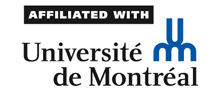By David Lublin, Professor at American University
http://www.american.edu/spa/faculty/dlublin.cfm
Goal
The goal of Election Passport is to enable researchers and students to engage in high-level analysis of elections on countries for which data are not easily available. From Albania to Zimbabwe, this site provides unusually complete constituency-level election results, including votes won by very small parties, independents, and frequently, candidate names that are difficult to locate.
Why did you develop election passport?
My current work focuses on ethnic and regional parties in free democracies around the world—slightly more than 80 countries according to Freedom House. In the process of gathering election results for these countries, I collected a lot of the data now included in Election Passport. At the same time, I also realized that a lot of data for other electoral democracies was not easily available to scholars. I think it’s exciting that so many more countries are now holding elections that are meaningful in some way even if not fully free, so I began to assemble data for these countries too.
I am also concerned about preserving the world’s electoral history for future study. Many countries post election results very briefly on the web and then they disappear—perhaps forever. At any rate, they are not easily located in hard copy even at the Library of Congress or on archives like the Wayback Machine.
Most importantly, additional data will enrich political science theory and understanding. I’ve been heartened by the Ph.D. students who have already contacted me regarding the dataset and who will be the people pushing boundaries forward in the future.
Which countries are included in Election Passport?
Based on a capricious definition of regions, here is a current breakdown:
- Latin America: 17
- Caribbean: 21
- Sub-Saharan Africa: 19
- Post-Communist: 12
- Asia: 7
- Europe: 7
- Pacific: 6
Why these countries?
Ironically, many of the countries for which I gathered data for my own work are not included because their election results are available elsewhere. Why reinvent the wheel? I wanted to focus primarily on countries which constituency election data cannot be found in an organized manner from other sources, though there is overlap on occasion.
What sorts of use have you made of these types of data?
My current study focuses on the impact of electoral systems, decentralization, and other institutional rules on ethnoregional parties has been to identify their statewide and regional share of the vote. My hope is that gathering the data for partly free electoral democracies—often precisely the sort of countries where democracy is precarious or ethnic conflict threatens.
I could not have produced graphs like the following without this sort of data:
I recently published an article, “Dispersing Authority or Deepening Division? Decentralization and Ethnoregional Party Success,” in the Journal of Politics, which argues that decentralization has far less of a positive impact on ethnoregional parties than previously thought. Constituency-level data was vital to conducting this analysis across so many countries.
I also used this information to calculate the effective number of parties at both the statewide and constituency level—critical information for my current work on developing new measures of ethnic diversity and electoral system permissiveness designed to better predict the number of parties.
The descriptive aspect of the project is similarly useful to theory development. Without knowing the number of parties or the share of the vote won by ethnic parties, it is hard to develop solid grounded theories that explain when we find one or the other.
What are some of the other uses for the Election Passport data?
(1) Party-System Stability. The return of democracy to East-Central Europe has reminded scholars that party systems are not necessarily stable. Election Passport makes it possible to examine party system stability over a wider range of cases and to compare with existing data for longstanding democracies. Both should aid efforts to explain variability among both new and old democracies.
(2) Party-System Nationalization. Related to excellent work done by a variety of scholars such as Daniel Boschler and Daniele Caramani, more study is needed of the evolution of the nationalization of politics in new democracies. This study should prove especially interesting and fruitful precisely because so many are riven by ethnoregional cleavages due to the arbitrary nature of colonial boundaries that now persist as the frontiers of countries. Similarly, it will make possible to study to growth of party in countries where candidates as independents or without party labels.
(3) Incumbency Advantage. One of the first really good articles I read in political science was Andrew Gelman and Gary King’s work on the incumbency advantage, a.k.a. the personal vote, in the United States. More work needs to be done to extend this work elsewhere. Election Passport has information on candidate names for many countries, making possible to judge which candidates are incumbents.
I’m confident that many will think of alternative uses that I haven’t even conceived.
